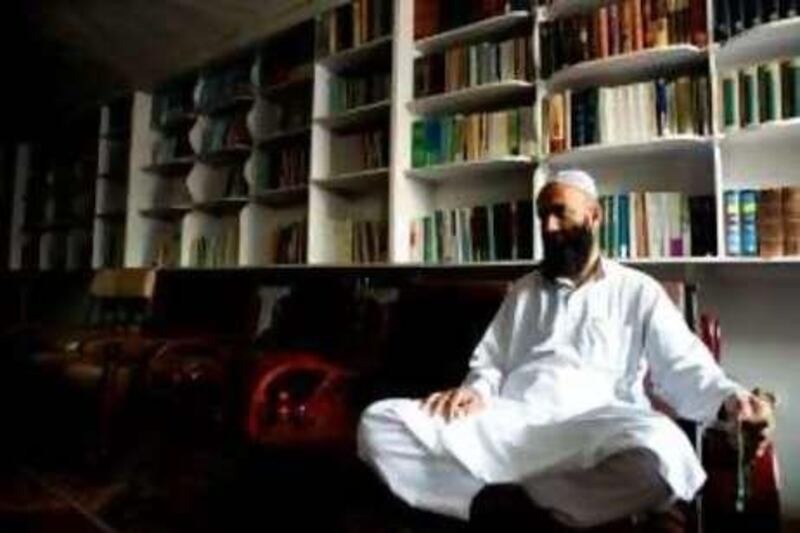KABUL // First came the case of the pregnant widow, jailed for three days in western Afghanistan before being lashed 200 times and shot in the head. She was killed after she was accused for having sex outside marriage. Then, in another part of the country, a young couple who had eloped were taken into a crowded bazaar. Stones were thrown at them until the woman died. The man was finished off with a gun.
The executions, which were carried out by the Taliban last month in the provinces of Badghis and Kunduz, were reminiscent of the punishments that the Taliban practiced in packed football stadiums after they took over the capital, Kabul, in 1996. Initially welcome by many Afghans tired of sectarian conflict, their austere regime soon acquired a brutal hue, as it imposed its own harsh vision of Islamic society, until a US-led invasion force ousted them after the September 11, 2001, attacks on New York and Washington.
Despite that experience of Taliban rule - or because of it - many ordinary people and religious authorities believe a strict interpretation of Sharia law is again needed to curb growing insecurity and stop what they view as the moral decay being sown by the presence of western forces in the country. "In the last nine years that this regime has continued, the rich have grown richer and the poor, who are the majority in Afghanistan, have grown weaker," said Mawlawi Habibullah Hassam, an imam at a Sunni mosque in Kabul.
He criticised the government and its international allies, claiming they had infected the country with un-Islamic practices that he compared to a virus. "The western countries are the same as the Afghan government. Both of them are corrupt and both of them are like swine flu," he said. About the time the Taliban were renewing their executions last month, 350 religious scholars viewed as moderates gathered in Kabul for a government-sponsored seminar entitled "Islam and Peace". They called for a tough system of Sharia punishments, known as "hudud", that were still mild against the backdrop of the deeply conservative interpretation of Islam that prevails here.
For many here, what they view as the US-led occupation of Afghanistan has brought huge social and political upheavals that they consider to be every bit as damaging as the war. Westerners and some Afghans see foreign fashions, TV shows and music as expressions of freedom, yet they have often created resentment and anger. Mawlawi Hassam, the Sunni imam, complained that since 2001 there has been a "media invasion", which "has destroyed our culture and family structure. Now we are seeing girls running away from home and women going to court. All these cultural changes are deliberate and one of the aims of the Westerners".
A candidate in this month's parliamentary election, Mawlawi Hassam is not a supporter of the Taliban. He condemned the stoning of the couple in Kunduz as a political decision handed down by a remote, unofficial court. However, he does believe that punishments including stonings and lashings can be legitimate if the correct process is followed. The most prominent Shiite cleric in Afghanistan is another opponent of the insurgents who, nevertheless, criticises the government for not implementing Sharia as it is outlined in the constitution.
Ayatollah Mohammad Asif Mohseni played a pivotal role in introducing a law for Shiites last year that gives a husband the right to withhold food from his wife if she does not have sex with him. He claims the closest the world has to a pure Islamic state today can be found in Iran, which meets "90 per cent" of the requirements. In Kabul, he said, there are stores that sell liquor under the counter, as well as brothels and sexual films that the government does not bar. "We also have banks that are charging interest," he added.
A friendly, elderly man, Ayatollah Mohseni describes the Taliban as "very extreme". Yet he believes an unmarried woman found guilty of having sex should be lashed and thieves should have the fingers of one hand cut off. "If you kill someone on purpose, the relative of the victim has the right to kill you or ask for money," he said. The Afghan government still carries out the death penalty, but executions are rare and done behind closed doors. Conservative critics say this is one reason the country is plagued by rising crime and violence - problems that even ardent opponents of the insurgency acknowledge the Taliban controlled.
As secretary of the Ulema Council, Mawlawi Abdul Rahman Kalakani helped organise the Islam and Peace gathering. He condemned human rights groups for putting too much pressure on the Afghan government and said greater oversight was needed to make sure Islamic laws that existed are correctly followed. "As we have some problems in economic affairs, cultural affairs, political affairs and implementation of military affairs, so we have some problems with the implementation of Sharia," he said.
csands@thenational.ae





